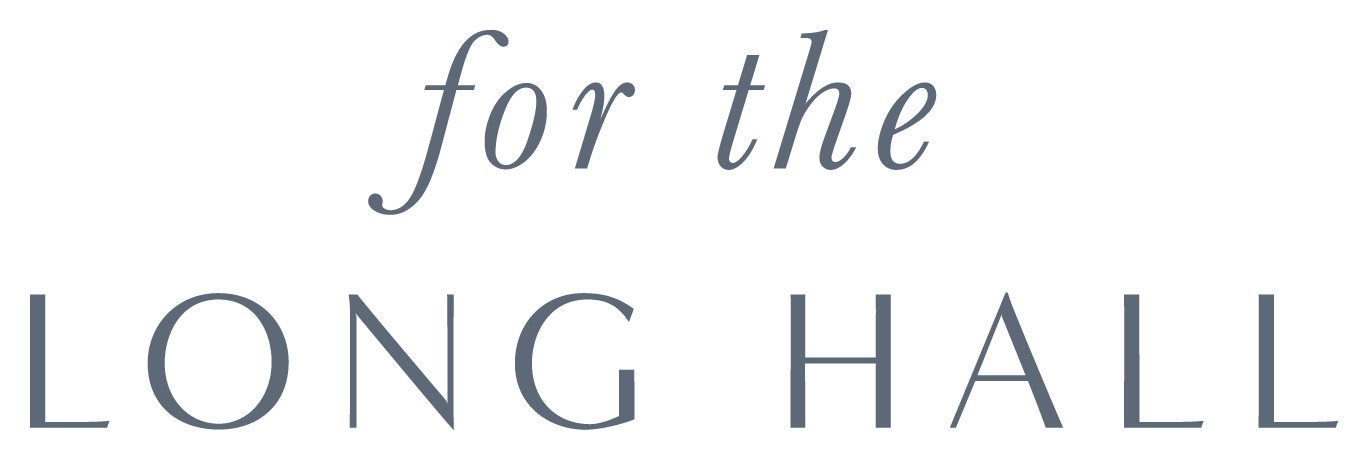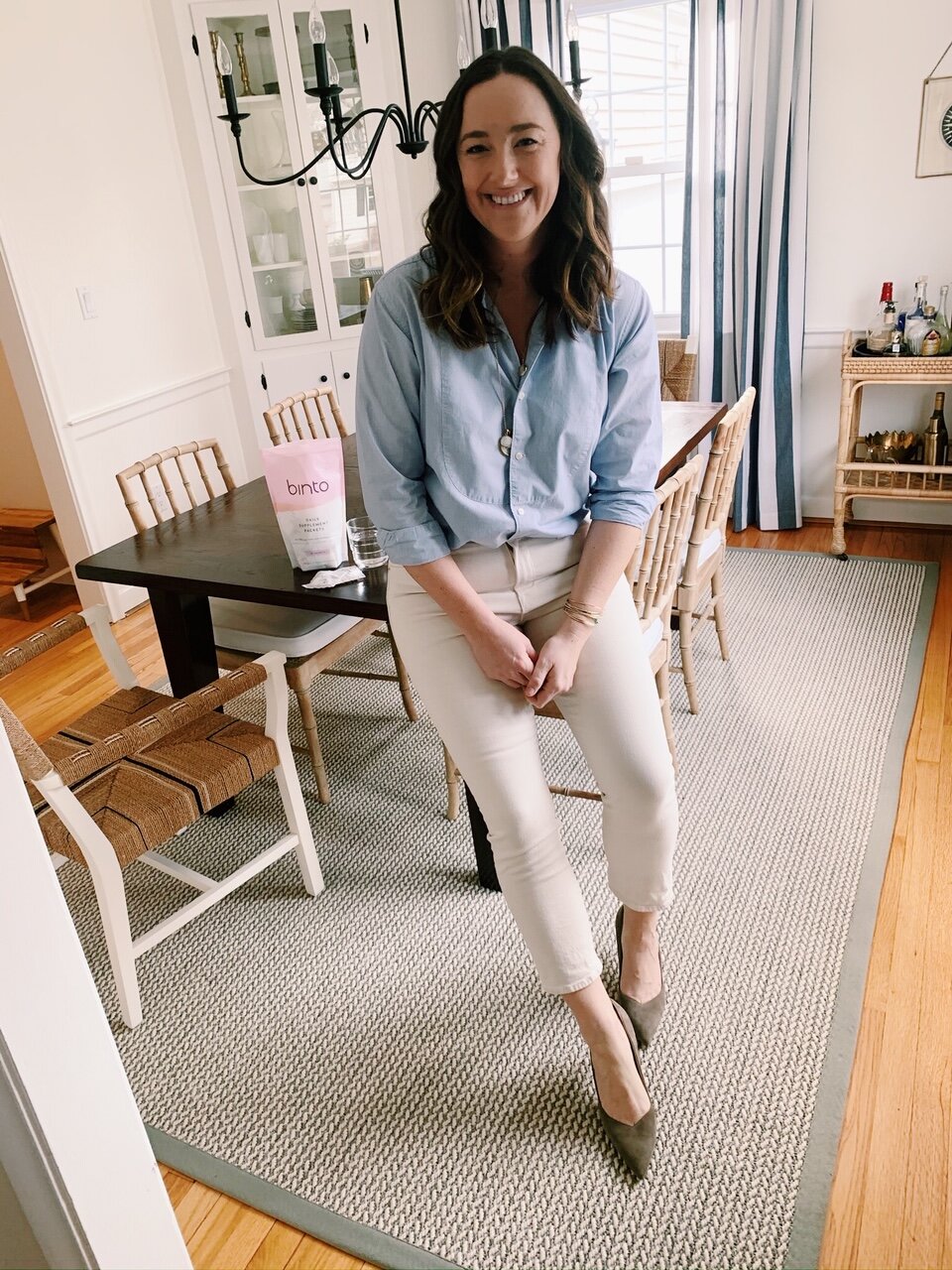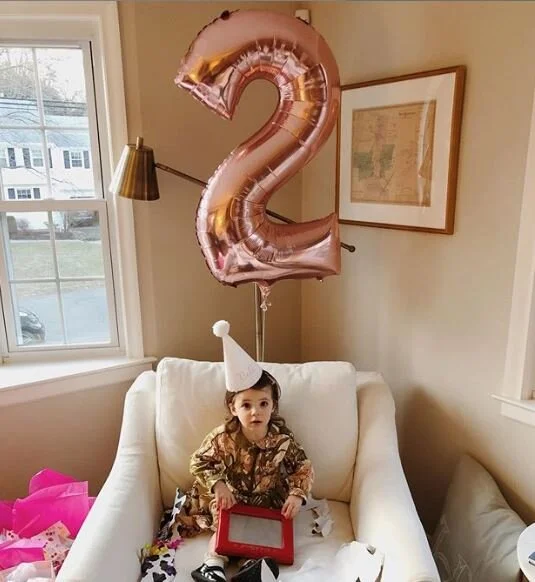Health #FortheLongHall: First 2020 Update
Three months ago now, in late 2019, I made the choice to prioritize my health for a year. The annual format seems to work well for me, giving me enough time for self forgiveness and grace as I make sustainable changes. I spent the latter part of last year reading everything I could get my hands on repairing your body through mindfulness and diet and racked up hundreds of hours meditating. If you’re new around here, I have Stage 4 endometriosis and adenomyosis, a relatively under-researched but scarily common disease most easily categorized (for now) as an inflammatory or autoimmune condition. Diet and health are essentially your only partners in managing symptoms aside from aggressive hormonal therapies. I’m currently working to avoid my third surgery and wean off of hormonal birth control for the first time in almost 20 years.
Now that it’s a few months into the new year I thought I’d provide an update as to what I’ve been up to and how my progress is going. I’d hope to post more frequently but one the first things I learned is that there’s a pretty simple reason it’s so easy to let your health slip - maintenance takes up a LOT of time!! So, there hasn’t been much time left over between lots of doctor visits, my full time job, and family/motherhood. My goal for the first few months of the year was to re-establish my foundational health. I know that I will burn out if I try to “fix” every aspect of my health in one month (hence why most resolutions die out after January) and that in order to be successful, I needed to get my ducks in a row in re-establishing taking care of myself from the most simplistic level. In summary, here’s what I’ve been up to:
Finding a primary care physician aligned with my needs and perspective (minimally invasive, supportive of holistic health, a woman, and local). Thankfully my sister-in-law had a great recommendation and I was able to get in by mid-February, that visit went well and I REALLY liked her!
Annual dermatologist skin check (all is well!)
Sought out and started working with an integrated holistic health RN (more on that later)
Called 235245 doctor’s offices to collect my entire endometriosis medical history so that I can package it together and send it to Atlanta for review by the best endo specialists in the US (this is the WORST - I cannot believe there isn’t a better way to manage this in today’s digital age!)
Visited my mental health APRN that I’ve worked with since my severe PPD crisis to check in on my medication - I’m staying the course and resisting the urge to quit my anti-anxiety med. I trust this provider and I feel much better so for now, I listen :)
Researched essentially every supplement, vitamin, probiotic, etc. brand online and finally landed with Binto, a vitamin company staffed by actual health professionals that provides customized, organic, gluten-free and vegan vitamin packets monthly. Every patient is assigned to an actual healthcare provider that oversees your supplementation and is available anytime to answer questions, tweak your regime, etc. I’m heading into my fourth month on their protocol and I’m feeling SO much better. I love the product and have learned so much throughout the process of working with them that I inquired about partnering on this post and interviewing one of their founders, Suzie Welsh. They said yes!
As you know, I do not take partnerships lightly (hence why I waited to test multiple online supplement options before establishing a proactive relationship with Binto) so I thought I’d explain before diving into my interview with Suzie.
Why are you partnering with Binto?
Throughout my prep for my 2020 #ForTheLongHall wellness journey, I read a LOT about endometriosis, hormonal imbalance, and post-natal depletion. After 19+ years on constant birth control, several rounds of IVF, two hormone-disruptive surgeries and general neglect of my holistic health, all of the stars started to align that perhaps my body needed more than I could give it via food. I started out by trying several separate supplements from different suppliers and while I had some success, it was expensive (my pre/probiotic alone was $50/mo) and I was essentially piecing together my protocol on my own. My friend told me about Binto and I was elated to see that it was practitioner-founded and each protocol was developed for your individual needs (i.e. I told them I had endo and hormonal acne and had a baby two years ago - my plan reflects that). Better yet, it was less expensive for all of my supplements total than my previous probiotic alone, for a better quality, made-in-the-USA product.
After trying the product for a few months and finally seeing progress in both my ovarian regulation (no more night sweats) and my hormonal acne, I proactively inquired about a partnership. Suzie is actually my personal practitioner (and a former women’s health fertility nurse - and she’s only 31!) so I asked if she’d be up for answering some of the questions I myself struggled to find answers to in my pursuit of safe, custom supplementation to re-regulate my body. I hope this is helpful!
Q: I’ve been on hormonal birth control for almost 20 years. The information I’ve read is ALL over the place - it’s terrible for you, it prevents cancer, it ruins your hormones, etc. etc. What’s your take?
A. I think it’s important to note that there still a lot of unknowns about hormonal birth control. I don’t think we’ve done enough longitudinal studies about women on birth control for long periods of time. We just don’t have enough clinical data to correlate X and Y.
That said, there are not a lot of options out there for women. If you are in a relationship in which you do not want to get pregnant, it has a purpose and should be used for that. Similar to those that may seek symptom management from PCOS or endometriosis. The pill is necessary for some women and that’s ok.
I do agree however that there are other options for managing your health. I think the most important step is in finding the right provider for you. This step is often overlooked - take the time to find someone that will take their time with you - and really walk you through the potential adverse side effects of all options (for example, birth control can cause hair loss, intermittent bleeding, and even potentially blood clots for some women). This is easier said than done, however. In 50% of counties in the US there is only ONE OB/GYN option! We are starting to see major headwinds in telehealth that will hopefully help combat this.
I do think there is a need for better, longer-term, non-permanent birth control options for women that are not hormonal.
In terms of birth control “myths,” there are several that come to mind:
Birth control fixes irregular periods. It might! But the route cause might not be hormonal. Many practitioners race directly to birth control vs. evaluating the true root cause. For example, I was experiencing irregular periods in high school and was immediately put on birth control. In reality I was a 110-lb cross country runner and absolutely could’ve found a solution via diet, supplementation, and lifestyle changes.
If you want to get off of birth control you need a birth control detox. Birth control does not live in you. When you stop it, it’s out of your system in a very short amount of time (hence why it’s so critical to take it at the same exact time every day!).
Birth control causes infertility. This is not correlated with research. Typically if you are experiencing difficulty getting pregnant for more than a year after stopping birth control you should see a doctor, as it typically tied to an underlying cause .
Q. Can’t women get all of the vitamins and minerals you need through food?
A. For most people, no. Almost everyone is low in vitamin D, and that plays a HUGE role in reproductive health. There are a ton of vitamin D receptors on your uterus and a direct correlation between vitamin D and fertility. I would definitely also recommend vitamin D supplementation while on birth control. Sunshine and fish skin are also great sources of vitamin D.
Most people are also not consuming enough B vitamins, especially B12 and B6. There are also some preliminary studies looking at calcium consumption and fertility. Omega-3 supplementation is also necessary unless you are literally eating fresh, skin-on fish daily, or quality sources of nuts and olive oil.
Many other health conditions could greatly benefit from additional supplementation. Calcium supplementation for example is a common need for women and can be fortified by eating organic, full-fat dairy.
Q. I read a lot about postnatal depletion. What are your thoughts? Is it a real thing?
A. Yes. Supplementation postpartum is critical - especially from a hormonal perspective. After birth, your hormones have gone through an incredibly steep dropoff that you probably will not see again until peri-menopause. It’s important to remember that hormone metabolism happens in the gut. A quality probiotic is absolutely the most critical supplement postpartum.
A lot of women stop their prenatal vitamin postpartum but that’s actually when it’s most important, along with vitamin D and DHA. It’s so important. here at Binto we pride ourselves in focusing on MOM postpartum. It’s a sorely under-served group in the United States - everyone talks about fertility but no one talks about postpartum or menopause. We have not updated our postnatal care plan since the 1980’s! I started my career as a labor & delivery nurse and found it terrifying that I spent only five minutes with a patient before sending them home. This is a big part of why every Binto customer has access to a licensed practitioner (nurse chat is free)!
Q. There have been a few stories in the media lately about unregulated supplements causing severe illness and liver failure. Is supplementation safe?
A. Supplementation is safe in moderation. This is why we believe a personal approach is so important - to prevent over-supplementation. This is also why we only have 16 supplements in our roster… we are hyper-focused on supplementing what women can’t get from their food alone. The vitamins we would worry about most are fat-soluble vitamins, as they are broken down in the liver.
It’s also important to note that physicians aren’t really taught much about supplementation in school, so unless they go out and do their own research it’s not typically their first recommended protocol. Interestingly enough, we studied the prescription prenatal vitamin that is available to women and found that it was absolute junk. It included no ingredient list at all and did not clarify if it had any iron in it! It was also totally void of DHA. Even if something is prescribed by a physician, it’s important to ask questions and understand what you are taking (and what you may be missing!).
Do you have any questions for Nurse Suzie? Leave them in the comments below and I will post her answers directly.
Binto has generously offered 20% off of your first month’s order - enter code meghall at checkout!
Thank you to Binto for sponsoring this post. This post does not include affiliate links.









